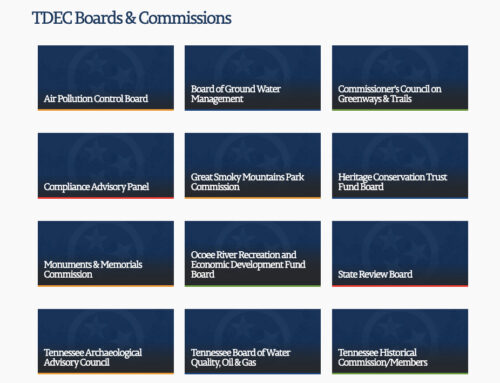By JONATHAN MATTISE
Associated Press
NASHVILLE, Tenn. (AP) – A report has found that there are now 538 exemptions to Tennessee’s public records law, about six times as many as there were three decades ago.
According to the state comptroller’s office, the Tennessee Public Records Act only had two statutory exceptions when it was enacted in 1957. By 1988, a legislative committee reported there were 89 exceptions.
In its report released Tuesday, the comptroller’s Office of Open Records Counsel found that number has grown to include hundreds of exceptions in Tennessee Code.
“I will tell you, they are hodgepodge all over the Tennessee Code Annotated,” Jason Mumpower, comptroller’s office chief of staff, told a Senate committee Tuesday. “I think we found them all.”
Senate Speaker Randy McNally, R-Oak Ridge, and House Speaker Beth Harwell, R-Nashville, requested the list to evaluate which exemptions may need to be removed or placed in sunset, where lawmakers vote to let a law continue, change it or let it expire. The legislative leaders made the request after reporters asked them about the exemptions last year.
Out of the 538 exemptions, only two are now scheduled to sunset: Protections for investment records of higher education institutions, to sunset in July 2021; and some exceptions for police body camera footage, slated to sunset in July 2022, Mumpower said.
McNally said Sen. Ken Yager, a Kingston Republican, and Sen. Mike Bell, a Riceville Republican, will be thoroughly examining the report.
“They will be taking a deliberate and systematic approach to determine which exemptions can be put into sunset or removed from the code altogether,” McNally said in a statement. “I look forward to hearing all legislators’ ideas on how to eliminate any unnecessary, unneeded or redundant exemptions.”
Yager said he plans to form a subcommittee this legislative session to review the report and make recommendations for next session in January 2019, possibly including legislation.
“We should take a very careful approach to this and avoid any knee-jerk type of reaction,” Yager said.
The report doesn’t include other exceptions that may be in Tennessee court rules, federal law, common law or agency rules.
Some exemptions are obvious, including Social Security numbers, financial routing codes and medical records of people treated at state or local government hospitals.
Others aren’t uniform. State employee job performance evaluations are exempt from public disclosure, but city and county employee evaluations are not, Mumpower said.
Some may be obsolete. One exemption requires 911 districts to keep unpublished phone numbers confidential, which traces back to a time when phone books were widely used. But 911 systems now receive numbers over a computer-aided dispatch system, so figuring out if the numbers are unpublished requires extensive research or cooperation from phone companies, Mumpower said.
The comptroller’s report does not make any recommendations.
Deborah Fisher, executive director of the Tennessee Coalition for Open Government, said the sheer volume of exemptions shows it’s not too hard to get one passed.
“Some of them make a lot of sense, but I think some of them do need review to see if they’re interfering with the public’s right to know what government is doing,” Fisher said.
Link to full report: http://www.comptroller.tn.gov/openrecords/pdf/20180119ExceptionsToTheTennesseePublicRecordsActFinal.pdf




